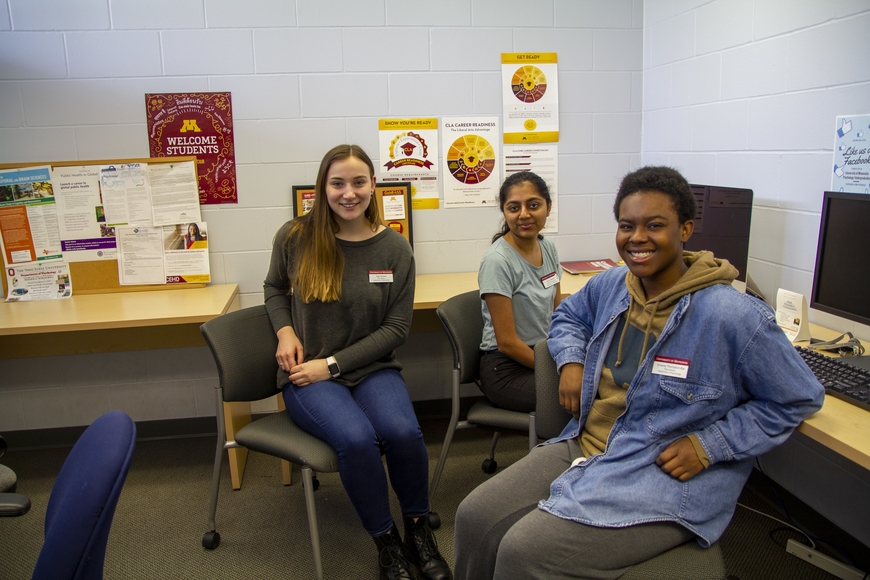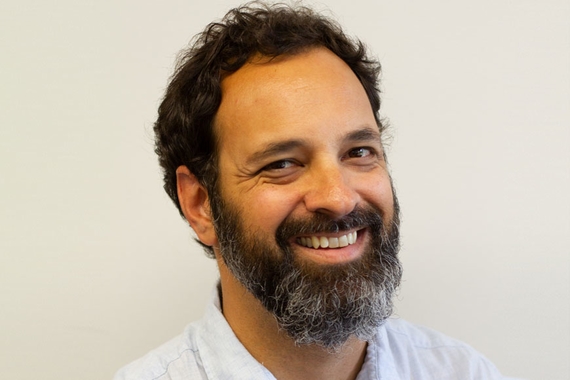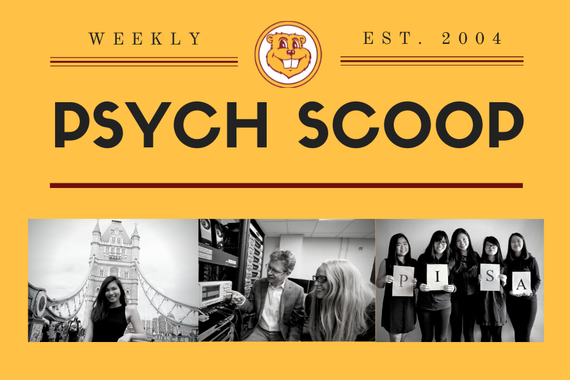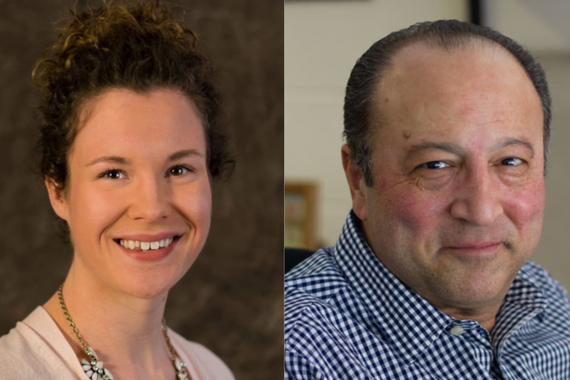Peer Advising in Psychology is a win-win-win!
Psychology Advising COVID-19 Response
Our staff is here and ready to be available as we all
transition into a fully remote and online environment
in our current status. Our staff has been working hard
to update our processes, communications, and staffing
in anticipation of what is typically a busy “registration period”
of March/April. We will do our best to continue to provide as
many services and engagement experiences as possible. More…
OPEN for business
M, Tu, Th, F 8:00 AM-4:30 PM
W 10:00 AM-4:30 PM
Peer advising in Psychology is a win-win-win situation: our undergraduate majors benefit from the expertise of their peers who can relate ‘as peers’ to their situation, our Peer Advisors develop skills and experience in a professional setting, and our undergraduate advising staff seek input from the Peer Advisors to get help in supporting the caseload of Psychology advisees.
The caseload? As one of the largest departments in the University of Minnesota, Psychology has 1,792 undergraduate majors and counting. During the 2019 Fall semester, our peer advisors met with 467 students. This included 49 walk-ins, 188 scheduled appointments, and 230 phone calls. Peer Advisors helped students declare their majors and plan their route to graduation, and discussed study abroad options and joining one of the many student groups. Recently, Peer Advisors have helped with special projects such as putting the minor declaration process online and help to organize new and standing events like Get to Know your Faculty, Chat and Chew, and the Transfer Pizza Party.
After talking to three psychology Peer Advisors, one of the benefits of the position was seeing a student walk into a meeting with anxiety and walking out with calmness and an understanding of the next steps. Sometimes students come into the office with the impression that Peer Advisors do not have the authority or knowledge to assist them. Ultimately the advisors demonstrate the confidence and expertise to help students feel comfortable; it is the peer in Peer Advising that makes this work. As Rucha Markale says, “Peer advisors have a lot of experiences and connections to share because they are in the courses right now and are themselves good resources.”
Meet our Peer Advisors
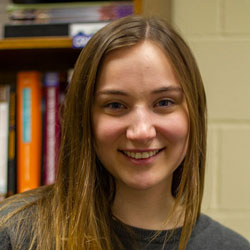 Gabi Kinney is from Maple Grove, Minnesota. She is majoring in Journalism: Strategic Communications and Psychology with a minor in Interdisciplinary Design. Gabi has studied abroad in London, England in the United Kingdom. With her passion for graphic design, she has been actively coordinating and designing the office’s yearly report and designs for the area and department. "Working as a Peer Advisor is such a rewarding experience. I love providing my peers with helpful information and advice from a student-to-student perspective." |
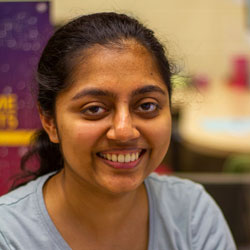 Rucha Markale is from Pune, India and has lived and studied in India, Singapore, and the United States. She is majoring in Psychology with a minor in Neuroscience and Child Psychology. While very new to the role of a peer advisor, just starting in spring 2020, Rucha has worked in the Psychology Undergraduate Office Assistant since September 2018. |
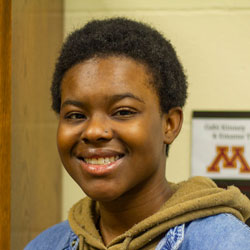 Emame Thompson-Eja is from Naperville, Illinois. Born in Nigeria, Emame emigrated with her family at the age of 2. She is studying psychology with a minor in Spanish and Gender, Women, and Sexuality Studies. Currently, she is studying abroad in Toledo, Spain until the end of Spring 2020. Emame has been an active coordinator in setting up undergraduate events and assisting student groups. |
Due to the complex nature of the Peer Advising role, Peer Advisor Supervisor, Mary Simonsen is careful when hiring new peer advisors. Applicants need to be reliable, independent, inquisitive, motivated, and strong listeners; they also need strong verbal and written communication skills. Finally, they need the skills and perseverance to navigate the University, accessing different databases and knowing just what office to contact so that they can best assist their undergraduate peers. Once hired, new employees usually begin as an Office Assistant in the Undergraduate Advising Office as a means of gaining basic knowledge of how the office runs. Eventually, the peer-advisers-in-training will use their new skills, abilities, and perspectives to connect with students and help them on their path to graduation.
Peer advising - a win for our 1,792 undergraduate majors, a win for our excellent peer advisors, and a win for our undergraduate advising staff. And this means peer advising works for the University of Minnesota!
